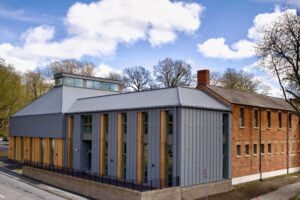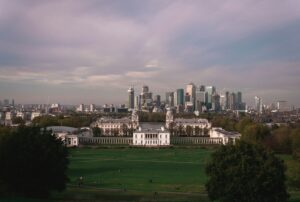‘Toxic’ planning system leading to inequality, report says
 The current ‘toxic’ culture of planning responsibilities is not compatible with promoting the health, wellbeing and civil rights of communities, according to a new report from the Town and Country Planning Association.
The current ‘toxic’ culture of planning responsibilities is not compatible with promoting the health, wellbeing and civil rights of communities, according to a new report from the Town and Country Planning Association.
Their task force collected information for 18 months and found that people no longer perceive council planning departments as being able to protect the public interest, with the economic gain of landowners and developers taking precedence over all else.
Former housing minister Nick Raynsford, who chaired the task force said: ‘We ignore at our peril the anger and disaffection felt by so many communities at the failure of current planning policies and procedures to listen to their concerns and respond to their needs. Restoring public confidence in the planning system is one of our generation’s greatest challenges.
‘Visionary planning is not just about creating great places in which to live and work. It is also about ensuring that we meet the huge environmental challenges our society faces, not least those arising from the very serious threat of global warming.’
The review also found that continued reform has led to councils forming development plans in an uncoordinated way which fails to address sub-regional impacts of flooding or coastal erosion–with the government essentially ignoring international frameworks which call into question the practice.
To reduce inequality in deprived areas, the review argues that the Treasury must partially redistribute capital gains tax and stamp duty to invest in the nation’s deprived area, with councils given powers to compulsory purchase land at a price which allows communities to benefit from the uplift of values created by development.
Hugh Ellis, interim chief executive of the TCPA, said: ‘Permitted development is toxic and leads to a type of inequality not seen in the Britain for over a century,’ said Hugh Ellis, interim chief executive of the TCPA.
‘Under the arrangements–which have already produced over 100,000 housing units–vulnerable people are stripped of any right to light and space, which their children forced to play in active car parks–with contribution to local services such as doctor’s surgeries or local schools.
‘We have a choice. Do we want to build the slums of the future or create places that actually enhance people’s lives?’
Read the report here.















